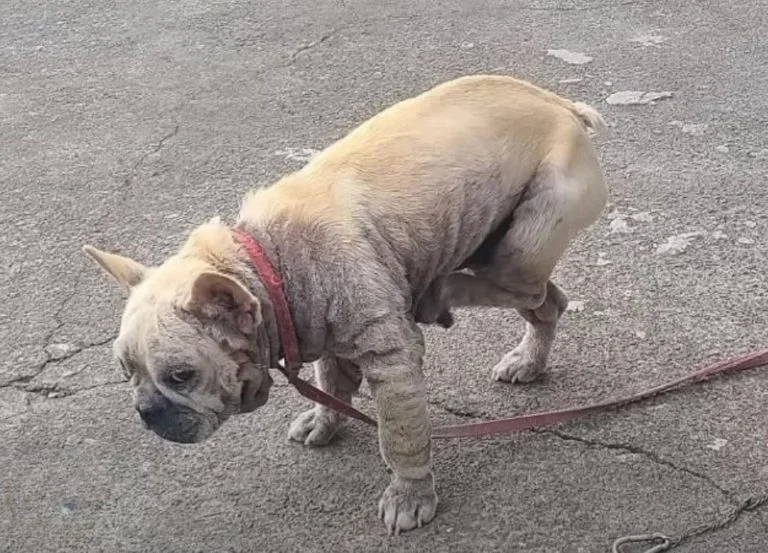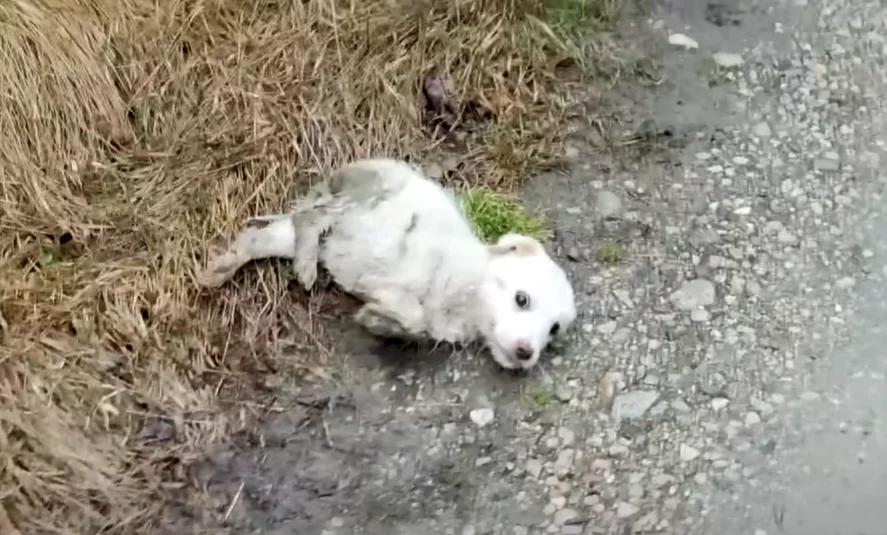Thinking about bringing a puppy into your life? Welcoming a new puppy will significantly impact your daily routine. Puppies require a lot of attention and effort, but they also bring immense joy and companionship.
Whether you’re a first-time puppy owner or just need a refresher, here’s what you should know to help your puppy grow into a well-adjusted adult. From selecting the right puppy and puppy-proofing your home to providing proper care and training, this guide covers the essentials to get you and your new furry friend off to a great start.

01 of 10: Choosing the Right Puppy
Selecting a puppy involves more than just falling in love at first sight. While an immediate connection with a puppy can happen, it’s crucial to consider various factors to ensure a good fit for your lifestyle. Reflect on what you’re looking for in a puppy: do you prefer a purebred or mixed breed? Are you drawn to larger or smaller dogs? Consider the breed’s typical grooming needs, exercise requirements, temperament, and potential health concerns.
Decide where to find your puppy—whether through a shelter, rescue organization, or a responsible breeder. Thorough research and patience are key. Once you find the right puppy, you’ll be ready to start a rewarding journey together.
02 of 10: Preparing Your Home for a Puppy
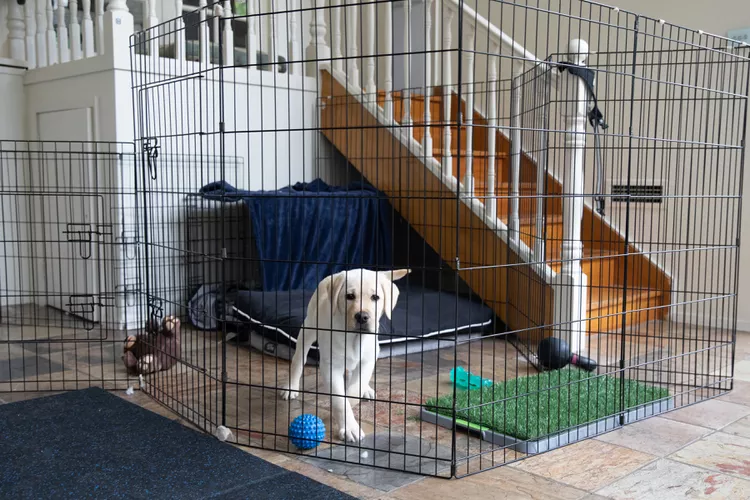
Before bringing your new puppy home, make sure your living space is safe and secure. Puppy-proofing is similar to child-proofing but requires attention to different details. Identify potential hazards from your puppy’s perspective—keep electrical cords, toxic substances, and fragile items out of reach. Puppies are curious and persistent, so secure cabinets and drawers with chew-proof latches and use baby gates to restrict access to certain areas.
Ensuring your home is puppy-proofed will help prevent accidents and protect your belongings, giving you peace of mind as your puppy explores its new environment.
03 of 10: Naming Your Puppy

Choosing a name for your new puppy is important since you’ll use it frequently throughout their life. Opt for a name that’s short, distinct, and easy for your puppy to recognize. Avoid names that sound similar to common commands or other words you’ll be using.
Consider names that reflect your puppy’s personality or appearance, but ultimately choose something that feels right for you. Consistently using the chosen name will help your puppy learn and respond to it more quickly.
04 of 10: Essential Puppy Supplies

Prepare for your puppy’s arrival with some key supplies. Essential items include a collar and leash, food and water bowls, chew toys, a comfortable bed, and a crate or kennel. Many of these items will need to be updated as your puppy grows, so consider adjustable or expandable options where possible.
Budget for initial costs and ongoing expenses related to your puppy’s care, including grooming, training, and veterinary visits. Setting aside funds for unexpected costs, such as health issues, is also wise. Owning a dog can be expensive, with lifetime costs often exceeding $10,000.
05 of 10: Choosing Your Puppy’s Food
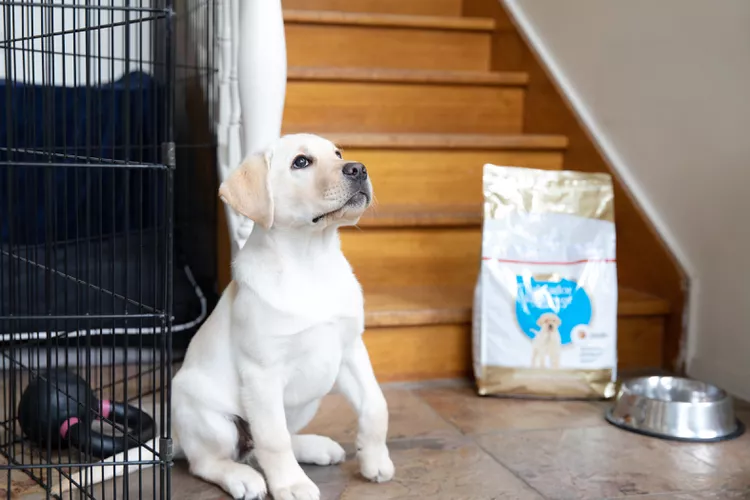
The right diet is crucial for your puppy’s health and development. Consult with your veterinarian and research various food options. You might choose from premium, holistic, or raw diets, depending on your preferences and your puppy’s needs.
Ensure the food you select is specifically formulated for puppies, not adult dogs. It should provide balanced nutrition to support growth and development. If needed, you can gradually switch foods if the initial choice isn’t suitable.
06 of 10: Keeping Your Puppy Healthy
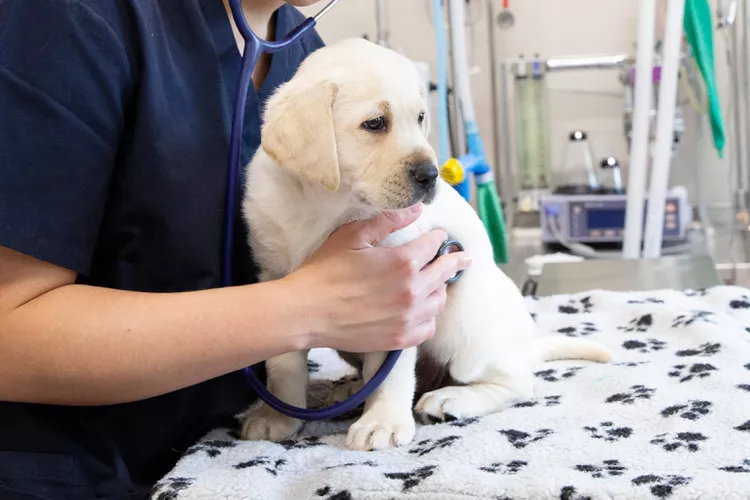
Ideally, you should choose a veterinarian before bringing your puppy home. Schedule a health check-up within a few days of your puppy’s arrival to establish a baseline for their health and to discuss vaccinations, spaying or neutering, and preventive care.
Regular vet visits are important for monitoring growth and catching potential health issues early. Consider pet health insurance or setting up a savings account for veterinary expenses. Some vet offices offer wellness plans that cover routine care.
07 of 10: Puppy Vaccinations
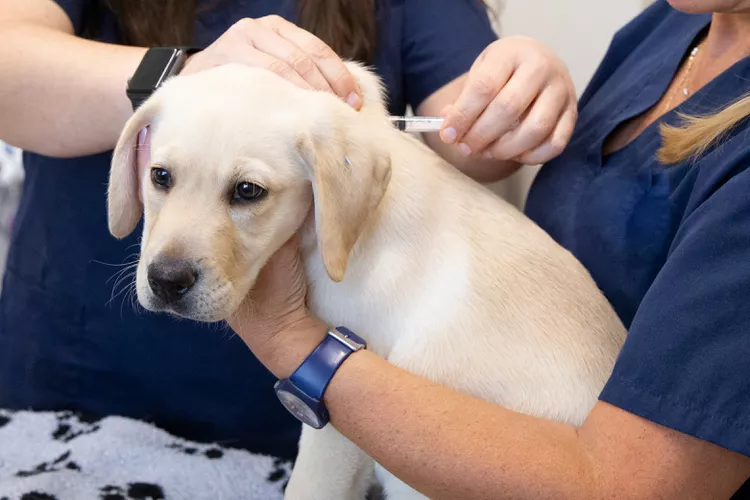
Vaccinations are essential to protect your puppy from serious diseases. Puppies need a series of vaccinations to build immunity, as their maternal antibodies wane. Despite some debate about vaccines, they are critical for preventing diseases that can be fatal or spread to humans.
Your vet will guide you on the appropriate vaccination schedule and may use longer-lasting vaccines or perform antibody titer tests when applicable. Regular vet visits during the vaccination period will help track your puppy’s health and development.
08 of 10: Housetraining Your New Puppy
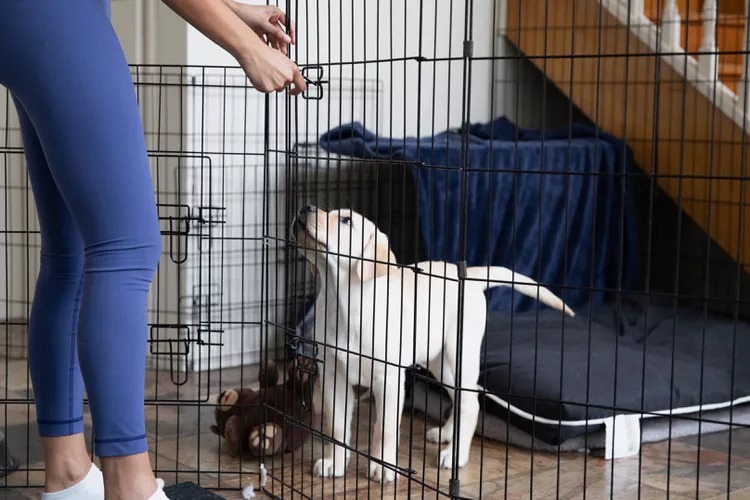
Housetraining is one of the first things you’ll tackle with your new puppy, and it requires patience. Puppies often cannot fully control their bladders and bowels until they are about 12 weeks old. Start housetraining immediately, but be prepared for accidents and progress at your puppy’s pace.
Consistency is key—take your puppy to their designated potty spot frequently, especially after meals and drinks. Use positive reinforcement to reward successful potty trips and patiently address accidents. Puppies need time to learn, so be patient and supportive.
09 of 10: Basic Puppy Training and Socialization
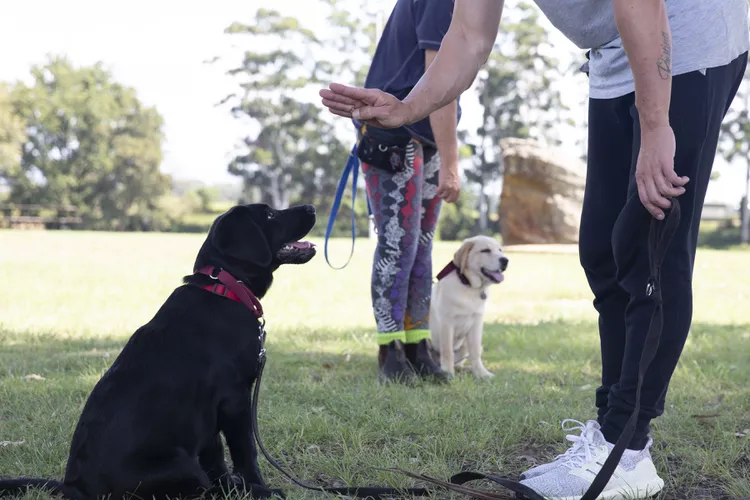
Training your puppy goes beyond housetraining. Focus on socialization, introducing your puppy to various people, animals, and environments. Basic commands like “sit,” “come,” and “stay” are crucial for establishing good behavior.
Puppies are naturally curious and may chew on inappropriate items. Redirect their attention to suitable toys and reward positive behavior. Consistent training and socialization will help your puppy become a well-adjusted, confident adult dog.
10 of 10: Bonding with Your Puppy

Building a strong bond with your puppy is essential for a happy and healthy relationship. Spend quality time together through activities like play, training, and exercise. Consider enrolling in obedience classes or participating in dog sports to strengthen your connection.
Engaging in activities like animal-assisted therapy can also enhance your bond and provide valuable experiences for both you and your puppy. A strong, positive relationship with your puppy contributes to their overall well-being and happiness.




